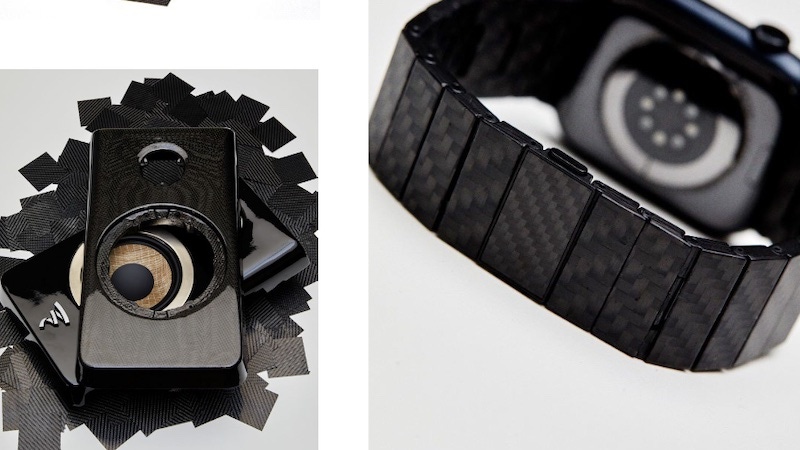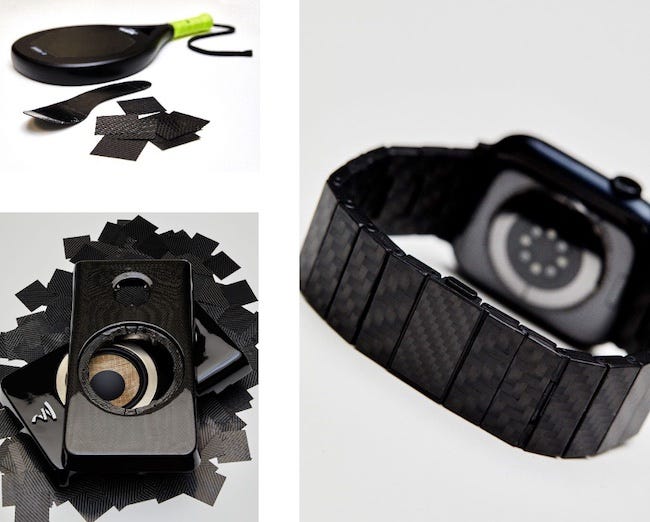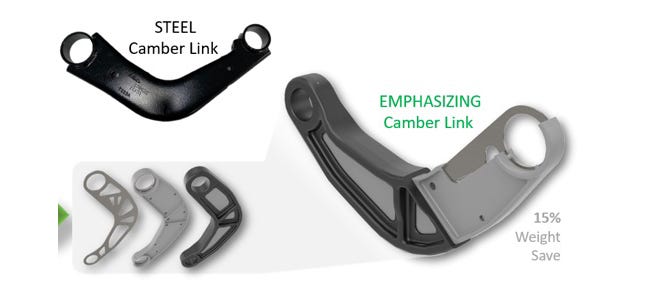JEC Composites Innovation Awards: Finalists in Circularity & Recycling Category
This category features entries from Fairmat, Greenboats, and Helicoid Industries.
February 7, 2024

At a Glance
- Building an AI-driven closed-loop ecosystem for carbon fiber
- Natural fibers as reinforcements, coupled with plant-based resin systems
- Glassene is a new, advanced material with a price-point close to glass and performance to rival carbon fiber
The 2024 edition of the JEC Composites Innovation Awards has kicked off with the naming of three finalists per category. The awards ceremony will take place in Paris on Feb. 8. Here we profile the successful entries in the Circularity & Recycling category.
Building a closed-loop ecosystem for carbon fiber
Company: Fairmat (France)
Partner: Hexcel Corp. (France)

Image courtesy of Fairmat
Description: Fairmat’s AI-driven and robotic technology creates 100% recycled carbon-fiber-reinforced plastic (CFRP) chips. Versatile for diverse product applications, these innovative chips offer strength, stiffness, and lightweight benefits, filling a gap in the advanced materials industry.
Fairmat’s software-centric approach drives scalable, decarbonized manufacturing, closing the carbon-fiber loop. Powered by AI and robotics, Fairmat’s CFRP chips, made from 100% recycled materials, provide tailored properties, enhancing performance while reducing environmental impact. Validated through more than 1,000 R&D tests, this innovation sets new standards for sustainable materials, according to Fairmat, applicable across sports, electronics, and mobility consumer product industries.
Key benefits
Keeps valuable carbon-fiber materials from going to waste
gives consumer brands the ability to develop sustainable, high-quality products
shifts from global to local production using advanced industrial solutions
Circular structures: Composites as a service
Company: Greenboats GmbH (Germany)
Partners: Depestele SAS (France), Hochschule Bremen (Germany), Next Horizon Mobility GmbH (Germany)

Image courtesy of Greenboats
Description: Greenboats reduces the environmental footprint and maximizes components usage over their lifespan, multiplying eco-friendly benefits. The company’s approach combines sustainability with efficiency, delivering durable, high-performance composites. Greenboats’ composite material innovation seamlessly integrates sustainability with advanced processing technology. Its focus is on using natural fibers as reinforcements, coupled with plant-based resin systems, and incorporating either natural or recycled core materials. This combination enables the company to construct high-performance, lightweight composites. By prioritizing these eco-friendly materials, Greenboats' unique approach, which includes overcoming the processing challenges of natural fibers, ensures production of environmentally responsible composites without compromising on quality or performance.
Key benefits
Eco-friendly materials reduce environmental impact
Affordability, reducing upfront client costs
Strong, durable, and lightweight materials enhance performance
Promotes material reuse and recycling
Flexible leasing options for diverse industry needs
Enhancing material properties by sizing
Company: B&M Longworth (Edgworth) Ltd. (UK)
Partners: Autotech Engineering (Gestamp) (UK), Brunel University London (UK), EMS-Grivory (UK), Ford Motor Co. (UK), Gen2Plank Ltd. (UK), TWI Ltd. (UK)

Image courtesy of Longworth
Description: The creation of “glassene,” an advanced material with a price-point close to glass and performance to rival some carbon-fiber materials delivers an impressively low life cycle analysis (LCA). The material can potentially promote structural reuse of composites on a mass scale.
Glass-reinforced plastics (GRP) from a range of sources — wind, marine, fiber production — are reclaimed as 100% clean glass using Deecom pressolysis. The fibers are chopped into 6-mm lengths before a range of sizing chemistries are considered as part of “Emphasizing.” The fibers are then assessed and tested, followed by compounding with polyamide resin and injection molding, creating a mass produced structural component, tested against its steel counterpart and with a characterization data card.
Key benefits
Solution for global glass-reinforced plastics waste
Enables wind/marine/glass-fiber industries to achieve zero waste from composites
Creates a green, low-cost advanced material to directly displace virgin materials
Recyclate can go back into industries looking to decarbonize
About the Author(s)
You May Also Like




